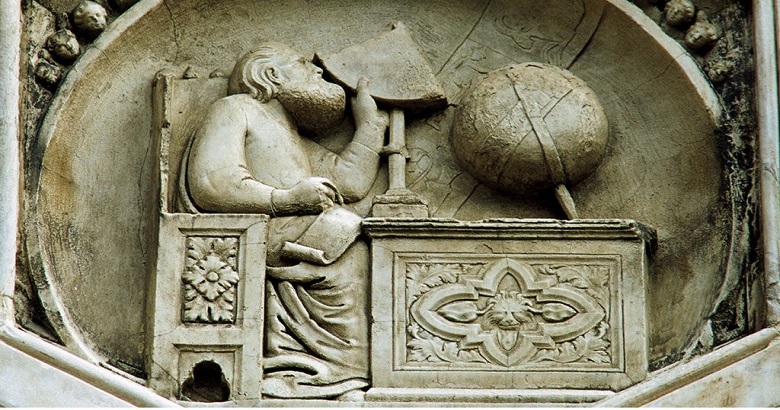Spiritual fantasy is a unique subgenre that blends fantasy elements with spiritual themes, offering readers an immersive experience that transcends the ordinary. Unlike traditional fantasy, which focuses primarily on magic and mythical creatures, spiritual fantasy delves into profound themes of enlightenment, the soul’s journey, and the nature of reality. This genre invites readers to embark on a transformative journey, exploring external adventures and inner quests.
The Essence of Spiritual Fantasy
Defining the Genre
At its core, spiritual fantasy fuses the mystical aspects of fantasy with the reflective nature of spiritual exploration. The genre often features quests for higher understanding, encounters with divine entities, and journeys through ethereal realms. These narratives encourage readers to reflect on their beliefs and the nature of existence. Through symbolic storytelling, spiritual fantasy seeks to illuminate universal truths and inspire personal growth.
A Bridge Between Worlds
Spiritual fantasy bridges the tangible and intangible, allowing readers to explore both physical and metaphysical worlds. This duality creates a rich tapestry where magical elements coexist with philosophical inquiries, offering a deeper layer of meaning. By weaving together the fantastical and the spiritual, this genre provides a unique lens through which readers can examine their lives and the world around them.
Key Themes and Elements
The Hero’s Inner Journey
In spiritual fantasy, the hero’s journey is not just a physical adventure but also an inner transformation. Characters often grapple with existential questions, seeking purpose and enlightenment. This inner journey can mirror the reader’s quest for self-discovery, resonating with the story. As heroes confront their fears and desires, they often undergo profound changes that reflect the transformative power of spiritual awakening.
Mystical Realms and Divine Encounters
These stories frequently feature mystical realms that symbolize the subconscious or spiritual planes. Characters might encounter divine beings, spirit guides, or ancient wisdom that challenge their understanding of reality. These encounters often catalyze growth and transformation, prompting characters to question their assumptions and embrace new perspectives. The vivid, otherworldly settings enhance the narrative’s mystical qualities, drawing readers into a realm of wonder and introspection.
The Quest for Enlightenment
Central to many spiritual fantasies is the quest for enlightenment. Characters embark on journeys to uncover hidden truths, often facing trials that test their faith and resolve. This quest reflects the universal desire for meaning and connection to something greater than oneself. Through challenges and revelations, characters learn to transcend their limitations, achieving a deeper understanding of themselves and the universe.
Cultural and Historical Influences

Ancient Myths and Legends
Spiritual fantasy often draws inspiration from ancient myths and legends, weaving timeless tales of gods, heroes, and cosmic battles into narratives. These stories provide a rich foundation for exploring spiritual themes, offering a sense of continuity with the past. By reimagining these myths, authors can explore timeless questions about fate, destiny, and the nature of good and evil, creating narratives that resonate with contemporary readers.
Eastern Philosophies and Western Mysticism
The genre frequently incorporates elements from Eastern philosophies like Buddhism and Hinduism and Western mystical traditions such as Gnosticism and Kabbalah. These influences enrich the narrative, providing diverse perspectives on spirituality and the nature of existence. Blending these spiritual traditions allows authors to explore themes of balance, harmony, and interconnectedness, offering readers a holistic view of the spiritual journey.
The Impact on Readers
Encouraging Reflection and Growth
Spiritual fantasy invites readers to reflect on their own beliefs and experiences. The genre encourages introspection and personal growth by presenting characters who confront profound questions and challenges. Readers may find themselves re-evaluating their spiritual journeys and the values they hold dear. Through the lens of fantasy, these stories provide a safe space for exploring complex emotions and ideas, inspiring readers to embrace change and pursue self-discovery.
Fostering Empathy and Connection
Spiritual fantasy fosters empathy and understanding by exploring interconnectedness and unity. Readers are reminded of the shared human experience and the universal quest for meaning, promoting a sense of connection to others and the world around them. Through the characters’ struggles and triumphs, readers gain insight into the diverse paths to enlightenment, fostering a greater appreciation for the richness of human experience.
Notable Works and Authors
Pioneers of the Genre
Authors like Paulo Coelho, with his renowned work The Alchemist, have helped define spiritual fantasy. Coelho’s stories often explore themes of destiny and self-discovery, resonating with readers worldwide. His narratives blend mystical elements with profound spiritual insights, offering guidance and inspiration. Through allegorical storytelling, Coelho invites readers to embark on their quests for meaning and fulfillment, encouraging them to pursue their dreams and listen to their hearts.
Modern Masters
Contemporary authors continue to expand the genre, infusing it with fresh perspectives and innovative storytelling. Writers like Neil Gaiman and Alice Hoffman incorporate spiritual themes into their fantastical narratives, creating rich, immersive worlds that challenge readers’ perceptions. By blending folklore, myth, and spiritual elements, these authors craft stories that explore the mysteries of existence and the transformative power of belief.
Writing Spiritual Fantasy
Crafting a Compelling Narrative
Writing spiritual fantasy requires a delicate balance between fantasy elements and spiritual depth. Authors must weave intricate plots that engage the reader while exploring profound themes. Symbolism and allegory convey deeper meanings, inviting readers to delve beneath the story’s surface. By crafting narratives that resonate emotionally and intellectually, authors can inspire readers to explore their spiritual journeys.
Building a Believable World
World-building in spiritual fantasy involves creating fantastical and spiritually resonant realms. These worlds must be rich in detail and imbued with meaning, reflecting the themes and messages of the narrative. This requires careful consideration of the world’s history, culture, and spiritual beliefs. By creating imaginative and authentic settings, authors can transport readers to realms that challenge their perceptions and expand their understanding of reality.
Developing Complex Characters
Characters in spiritual fantasy should be multi-dimensional, with inner conflicts and aspirations that drive their journeys. Their growth and transformation are central to the narrative, reflecting the genre’s focus on personal and spiritual evolution. Authors often draw on archetypal figures, such as the seeker or the wise sage, to guide characters on their paths. By creating relatable and compelling characters, authors can engage readers on a deep, personal level, inviting them to share in the characters’ struggles and triumphs.
Challenges and Criticisms

Balancing Fantasy and Spirituality
One of the main challenges in writing spiritual fantasy is finding the right balance between fantasy elements and spiritual themes. Authors must ensure that the spiritual aspects enhance the narrative rather than overshadow it. This requires a nuanced understanding of both genres and sensitivity to the audience’s beliefs and experiences. By crafting entertaining and thought-provoking stories, authors can create narratives that resonate with readers on multiple levels.
Avoiding Clichés and Stereotypes
Spiritual fantasy can sometimes rely on clichés or stereotypes, particularly when depicting spiritual traditions or beliefs. Authors must approach these elements with respect and authenticity, avoiding simplistic or reductive portrayals. This involves thorough research and a commitment to accurately representing diverse perspectives. By honoring the complexity and diversity of spiritual traditions, authors can create respectful and insightful stories.
The Future of Spiritual Fantasy
Expanding Horizons
The demand for spiritual fantasy will likely grow as readers become more interested in exploring spirituality and self-discovery. Authors are increasingly experimenting with new themes and narratives, pushing the boundaries of the genre. This evolution promises to bring fresh voices and diverse stories to the forefront, enriching the literary landscape. By embracing new perspectives and innovative storytelling techniques, authors can create narratives that resonate with a wide audience, inspiring readers to explore their spiritual paths.
Integrating Technology and Innovation
Technology may play a role in the future development of spiritual fantasy, with virtual reality and interactive storytelling offering new ways to engage with narratives. These innovations could provide readers with immersive experiences that enhance their understanding of spiritual themes and ideas. By leveraging technology to create dynamic, interactive narratives, authors can offer readers new ways to explore the mystical and the metaphysical, expanding the genre’s possibilities.
Finale Round
Spiritual fantasy is a rich and multifaceted genre that offers readers a profound journey into imagination and spirituality. Blending fantastical elements with deep philosophical inquiries invites readers to explore the mysteries of existence and their inner landscapes. As the genre continues to evolve, it promises to inspire and enlighten, bridging the gap between the mundane and the divine. Through its exploration of the human spirit and the quest for meaning, spiritual fantasy offers a unique and transformative reading experience, inviting readers to embark on their journeys of discovery and enlightenment.
Curious about what spiritual fantasy truly means? Imagine a genre where the afterlife is as complex and morally challenging as the world of the living. That’s what Michael Karolewski brings to life in the Valcara Incorporated Series. In The Soul Sector, the first book in this award-winning series, you’ll follow Rose Ryder as she navigates a dystopian purgatory where souls are traded and morality is a constant battle. This isn’t just fantasy—it’s a deep dive into spiritual realms where every choice echoes in eternity. Discover the essence of spiritual fantasy by immersing yourself in the darkly imaginative world of Valcara today.
Frequently Asked Question
1. How does spiritual fantasy differ from traditional fantasy?
Spiritual fantasy distinguishes itself by integrating profound spiritual themes alongside magical elements. While traditional fantasy often focuses on external adventures, spiritual fantasy emphasizes the inner journey of characters. It explores existential questions, self-discovery, and enlightenment, creating a narrative that resonates on a deeper, philosophical level. This genre invites readers to reflect on their own beliefs and the nature of reality, offering a transformative reading experience.
2. What role do cultural influences play in spiritual fantasy?
Cultural influences are pivotal in shaping spiritual fantasy, drawing from diverse traditions and philosophies. Ancient myths, legends, and spiritual practices from around the world enrich the narrative, providing a rich tapestry of symbolism and meaning. Eastern philosophies like Buddhism and Hinduism, along with Western mysticism, contribute to the exploration of themes such as interconnectedness and enlightenment. These cultural elements offer readers a broader perspective on spirituality and the human experience.
3. How does the hero’s journey in spiritual fantasy differ from other genres?
In spiritual fantasy, the hero’s journey is both an external adventure and an internal quest for enlightenment. Characters often confront existential dilemmas, seeking deeper understanding and transformation. This dual journey mirrors the reader’s own quest for self-awareness, making the narrative personally resonant. Unlike other genres where the focus is on physical challenges, spiritual fantasy emphasizes emotional and spiritual growth, encouraging readers to explore their inner landscapes.
4. What challenges do authors face when writing spiritual fantasy?
Authors of spiritual fantasy must balance fantasy elements with deep spiritual themes, ensuring that neither overshadows the other. Avoiding clichés and stereotypes, especially when depicting spiritual traditions, is crucial. Authors need to approach these themes with authenticity and respect, requiring thorough research and cultural sensitivity. Crafting a compelling narrative that engages readers while exploring complex philosophical questions is a delicate art that demands creativity and insight.
5. How is the future of spiritual fantasy evolving with technology?
The future of spiritual fantasy is expanding with technological innovations like virtual reality and interactive storytelling. These advancements offer new ways to engage readers, creating immersive experiences that deepen their understanding of spiritual themes. As technology evolves, spiritual fantasy can explore dynamic, interactive narratives, allowing readers to actively participate in the journey. This integration of technology promises to enhance the genre, offering fresh opportunities for exploration and discovery.Bottom of Form

